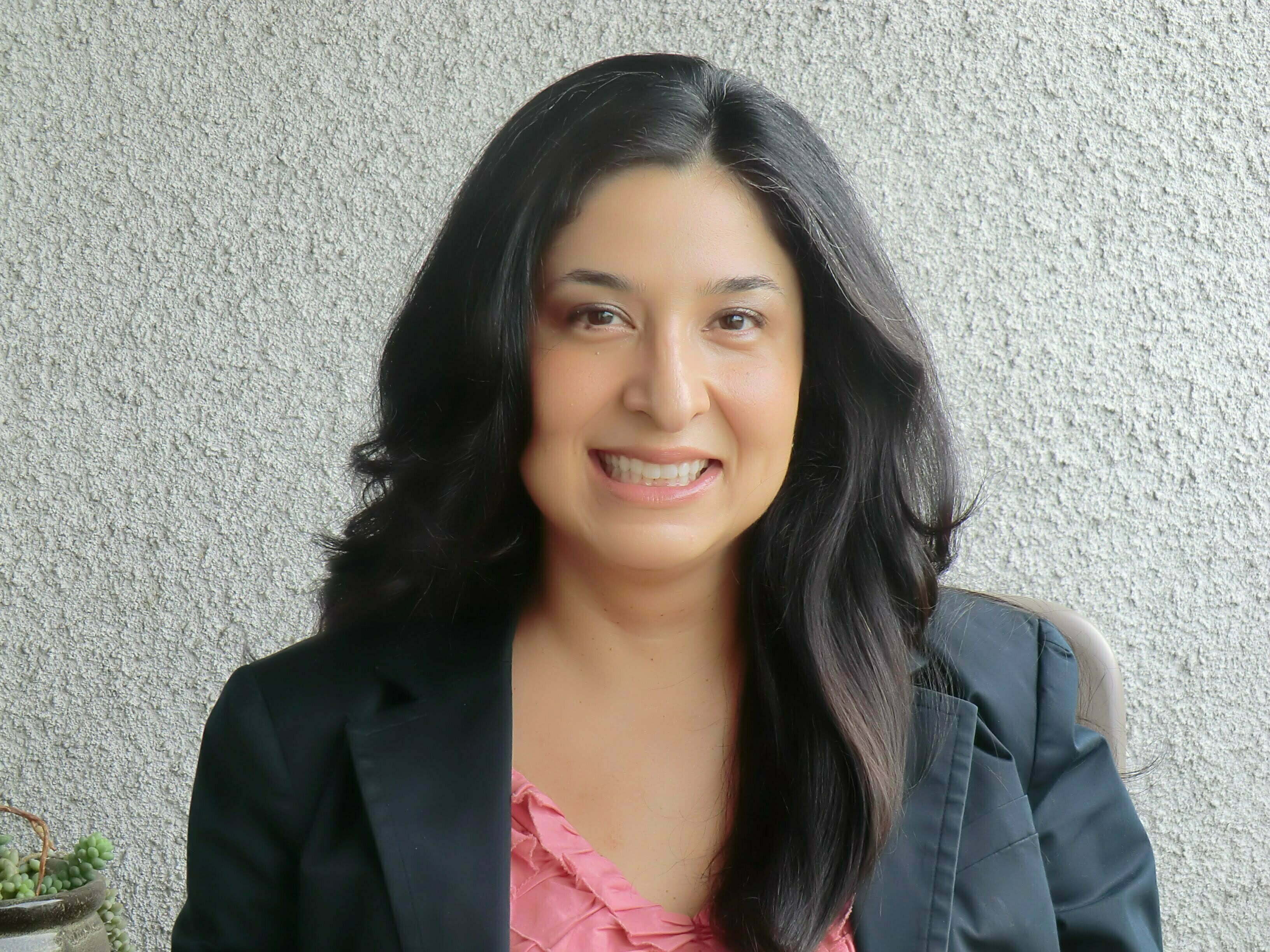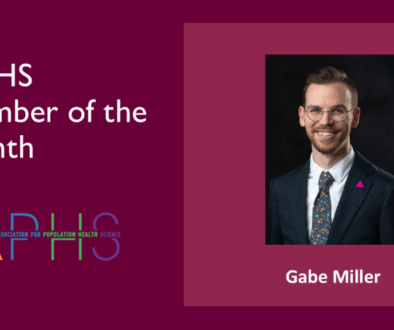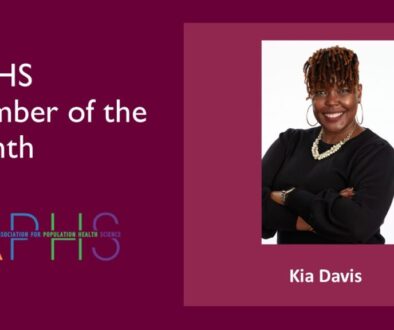Member of the Month: Tiffany Joseph
Sara Curran, Selena Ortiz, Muntasir Masum, Sung ParkTiffany Joseph is Associate Professor of Sociology and International Affairs at Northeastern University. Her research and teaching interests explore race, ethnicity, and migration in the Americas; immigrants’ health and healthcare access; immigration and health policy, and the experiences of faculty of color in academia. Her current book project qualitatively explores how documentation status, race, and ethnicity influence the healthcare access and utilization of immigrants after comprehensive health reform. She is also the author of Race on the Move: Brazilian Migrants and the Global Reconstruction of Race (Stanford University Press, 2015) and her work has been published in various peer reviewed journals and national media outlets. Tiffany completed her PhD in Sociology at the University of Michigan and a postdoctoral fellowship as a Robert Wood Johnson Foundation Health Policy Scholar at Harvard University.
You can follow Tiffany on twitter @TiffanyDJoseph.
Please share how your work relates to the issues and concerns that have emerged as a result of the COVID-19 pandemic.
My current project qualitatively examines Boston Latinx immigrants’ healthcare access under shifting health policies like the Massachusetts Health Reform and Affordable Care Act as well as immigration policies under the Obama and Trump administrations. Despite living in a state with more inclusive access to health coverage, I find that this group has remained disproportionately un(der)insured and their healthcare access worsened over the course of my study from 2012-2019. Changes in federal and state health and immigration policy alongside an intensified racialized and anti-immigrant national context contributed to negative coverage and care experiences. More specifically, the intersection of race, ethnicity, and documentation status meant that Boston Latinx immigrants (Brazilians, Dominicans, and Salvadorans) experienced legal discrimination based on their documentation status which influenced their coverage options. But, they also experienced ethnoracial discrimination in interactions with healthcare providers and/or law/immigration enforcement in route to obtaining care. Although I completed data collection before the start of the COVID pandemic, my research indicates that significant fear of racialized profiling, detention, and deportation made immigrants uncomfortable applying for and renewing health coverage and using that coverage to utilize health services. Racialized anti-immigrant rhetoric in recent years has made immigrants in communities where I conducted research afraid to get tested for and obtain the COVID vaccine. Furthermore, structural factors such as gentrification, unaffordable housing, and low wages in Boston yielded unsafe and crowded living conditions that contributed to high rates of COVID transmission and deaths among these communities. The bottom line is that pre-COVID structural exclusion in health care, housing, and jobs as well as deeply entrenched systemic racism and anti-immigrant sentiment and xenophobia contributed to COVID’s devastating impact in Latinx and other marginalized communities around the country.
Current population health efforts are focused on vaccination efforts. Going forward, what population health investments and policies are necessary to best prepare for and prevent future public health catastrophes?
Policies to bolster and increase funding for the public health system and improve the incredibly complex and confusing health care and insurance systems in this country are essential. From my research, I find that immigrant respondents experienced significant “administrative burdens” (Herd and Moynihan 2018) or bureaucratic barriers applying or reapplying for coverage and then navigating the healthcare system. And because many of these individuals had limited English proficiency, there was less government assistance available to help with interpretation when applying and trying to obtain health services. Given how ethnoracially and linguistically diverse this country is, we also need policies to make navigating the system more inclusive with increased funding for healthcare navigators and medical interpreters. Policies also need to adopt an equity lens and actively address long-standing racial and other types of discrimination in health care at the systemic level. Furthermore, additional training regarding social determinants of health, implicit bias, and racism in medicine is needed among healthcare providers as various studies indicate that negative provider-patient interactions contribute to worse health outcomes and negative healthcare experiences. It is also important that providers – particularly physicians – reflect the diversity of their patients and policies at the government and medical school level also play a crucial role in shifting such demographics.
Tell us about your professional journey and how you ended up studying Sociology?
My interest in Sociology began as an undergraduate at Brown University where I took Sociology and other classes on comparative frameworks of race in the Americas, particularly why racial constructions in the U.S. differ so much from other countries in the region with shared legacies of European colonization, Indigenous conquest, and African enslavement. I also felt that Sociology and research could be a tool to dismantle the various types of inequality plaguing the world and I wanted to do my part. Having amazing professors and research opportunities piqued my interest in pursuing a Sociology PhD. At the University of Michigan where I completed my doctoral work, my qualitative dissertation examined how migrating to the United States reconfigured Brazilian return migrants’ transnational understanding and experiences of racial categories and discrimination during their times in the U.S. and after they returned to Brazil. (This project was the focus of my first book Race on the Move.) Although that project was not about health, I found that respondents kept mentioning their physical and mental health and lack of healthcare access during their time in the U.S. Many felt their documentation status was a barrier, which piqued my interest in the link between documentation status and health care. After graduate school, I was fortunate to be awarded a Robert Wood Johnson Scholar in Health Policy Postdoctoral Fellowship at Harvard University. Given my placement in the Boston area, that there was a sizeable Brazilian community nearby, Massachusetts had become the first state to implement comprehensive health reform, and the Affordable Care Act had recently been passed, I felt that was the ideal time to examine how documentation status shaped health coverage and care utilization. Because of the shifting health policy context, I continued conducting interviews to better understand how the shift from the Massachusetts reform to the ACA to ACA repeal attempts reconfigured Boston Latinx immigrants’ healthcare access. Ultimately, I wanted to understand why and how differences in race, ethnicity, and documentation status mattered for their healthcare and daily life experiences. I am currently writing the book for this project and considering what my next research project will be, which will likely explore some aspect of the intersectional inequalities that marginalized groups face, particularly immigrants and citizens of color.
How is interdisciplinary work necessary for the topics you study?
There is no way I could do my research without an interdisciplinary or multi-lingual lens. Most of the research questions I have been interested in explore how racialized individuals experience the social world, particularly when moving across borders, and what are the health implications of that movement. To explore those questions, I have had to be immersed in scholarship by sociologists regarding race, migration, and health, but also anthropologists, humanists, and scholars in African and Latin American Studies, and law and policy. I have also approached my work from global comparative lens that goes beyond the US framework for exploring these issues. Because I have also tended to do research with understudied groups that are harder to access, it has meant learning new languages to effectively communicate. This interdisciplinarity has certainly made my research “messier,” but all the more interesting and compelling for understanding the human experience.
Why did you decide to become a member of IAPHS, and how does IAPHS help you to advance the work that you do?
I decided to become a member of IAPHS because I appreciated its interdisciplinary focus, but also because an adviser of mine, Sarah Burgard, asked me to serve on the editorial board of the IAPHS blog. Given my research interests, IAPHS has provided a space and community to interact with other population health scientists that I cannot get in other professional associations of which I am a part. The opportunity to present my work and receive constructive feedback in a friendly space is also something I appreciate. I have also benefited from participating in the mentorship program and getting concrete advice and guidance regarding professional development at this stage of my career.
We’d love to hear more about your personal interests! Favorite population health relevant academic/news/articles?
Because of my current project, I am very interested in reading anything related to immigrant health, but especially how that connects to race, racialization, and racism. The article that really stands out to me is Novak et al.’s 2017 article “Change in birth outcomes among infants born to Latina mothers after a major immigration raid,” as it extends Arline Geronimus et al.’s (2006)’ weathering concept to Latinas. The article demonstrates how immigration raids can negatively affect health outcomes not unlike the impact of structural racism on Black women and Black Americans more broadly. The rise of anti-immigrant rhetoric and policies can similarly affect the physical and mental health of immigrant communities, especially those racialized as people of color. These are very important parallels for understanding population health at this particular moment.
Hobbies?
When I am not working, I enjoy spending time with family and friends, cooking, being physically active, and binge watching my favorite TV shows.








All comments will be reviewed and posted if substantive and of general interest to IAPHS readers.